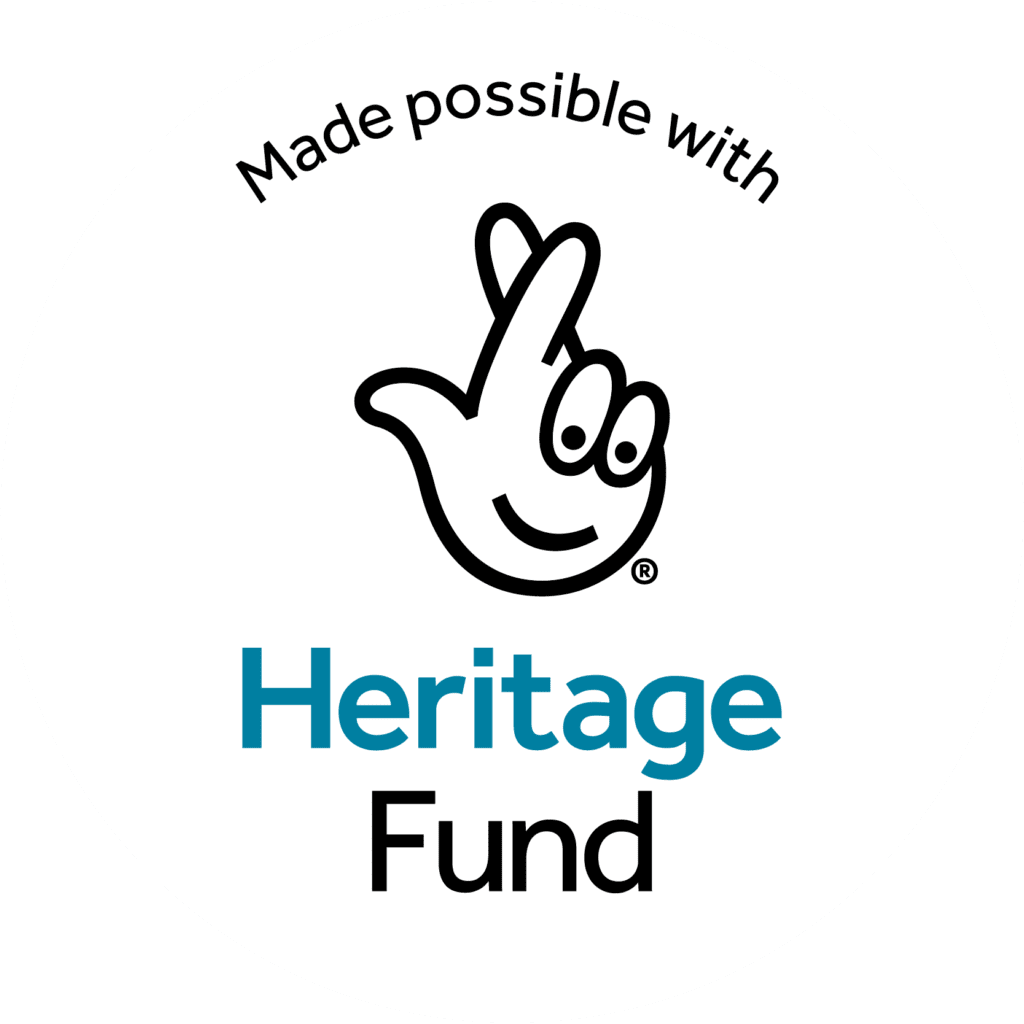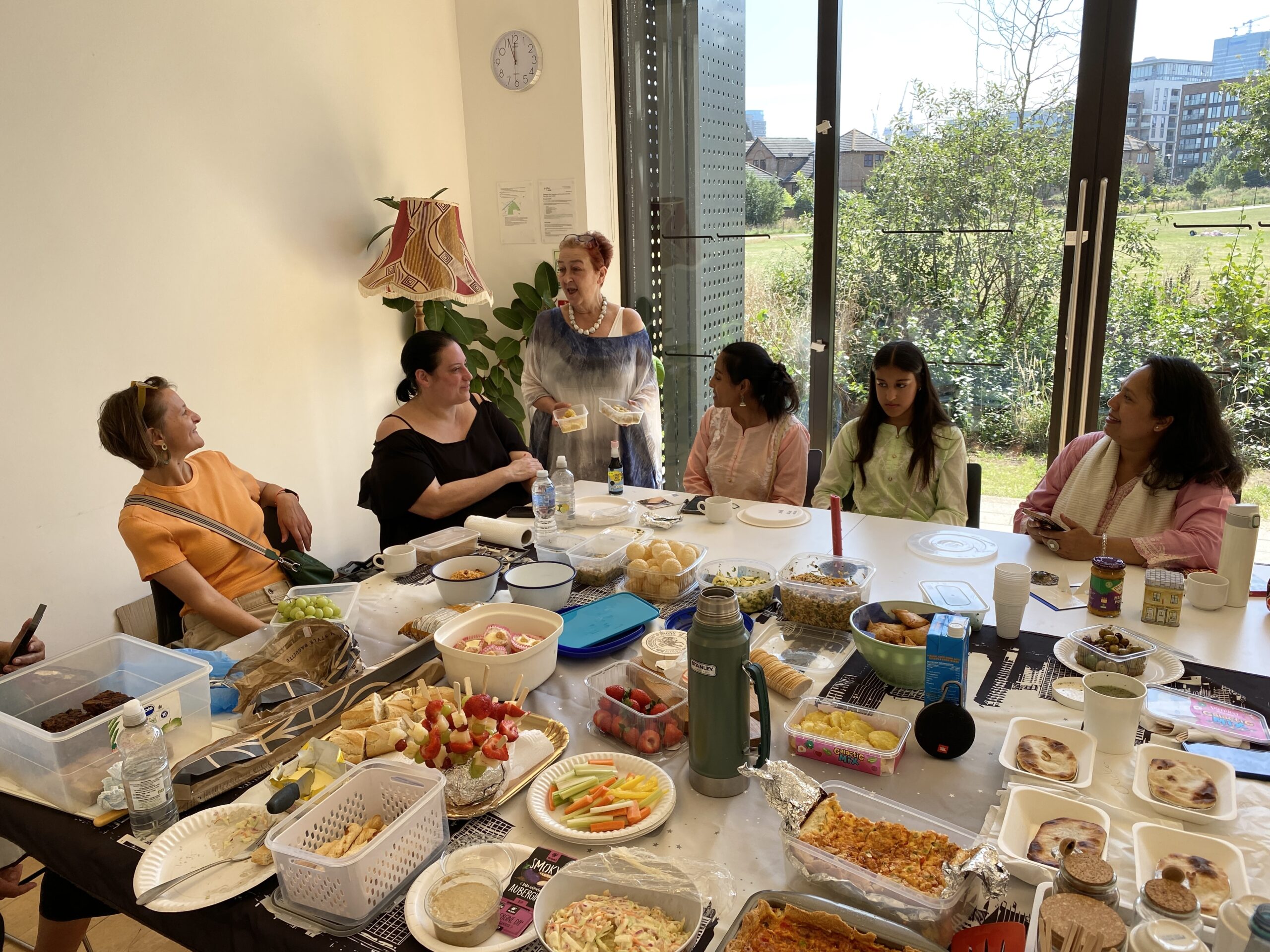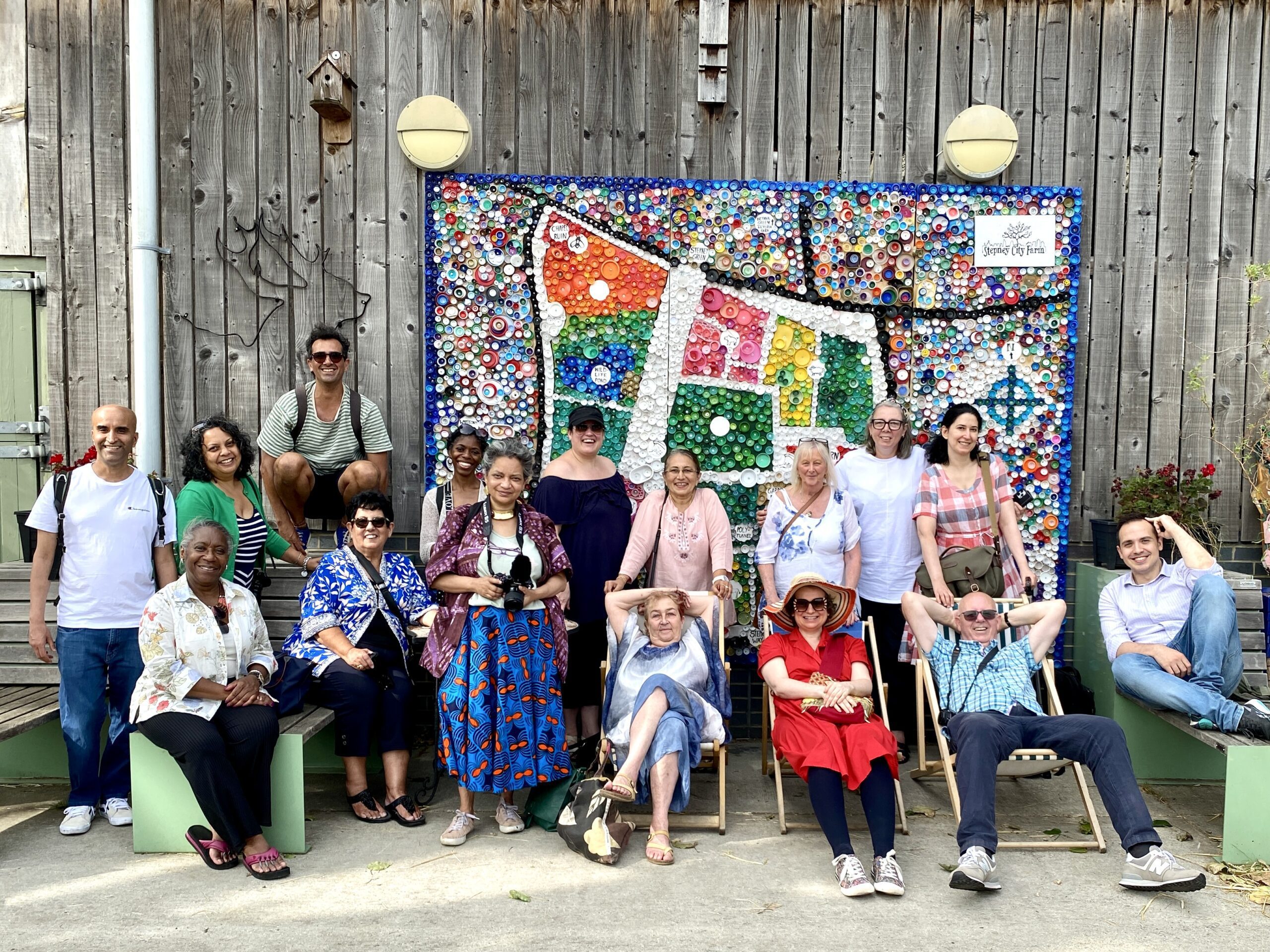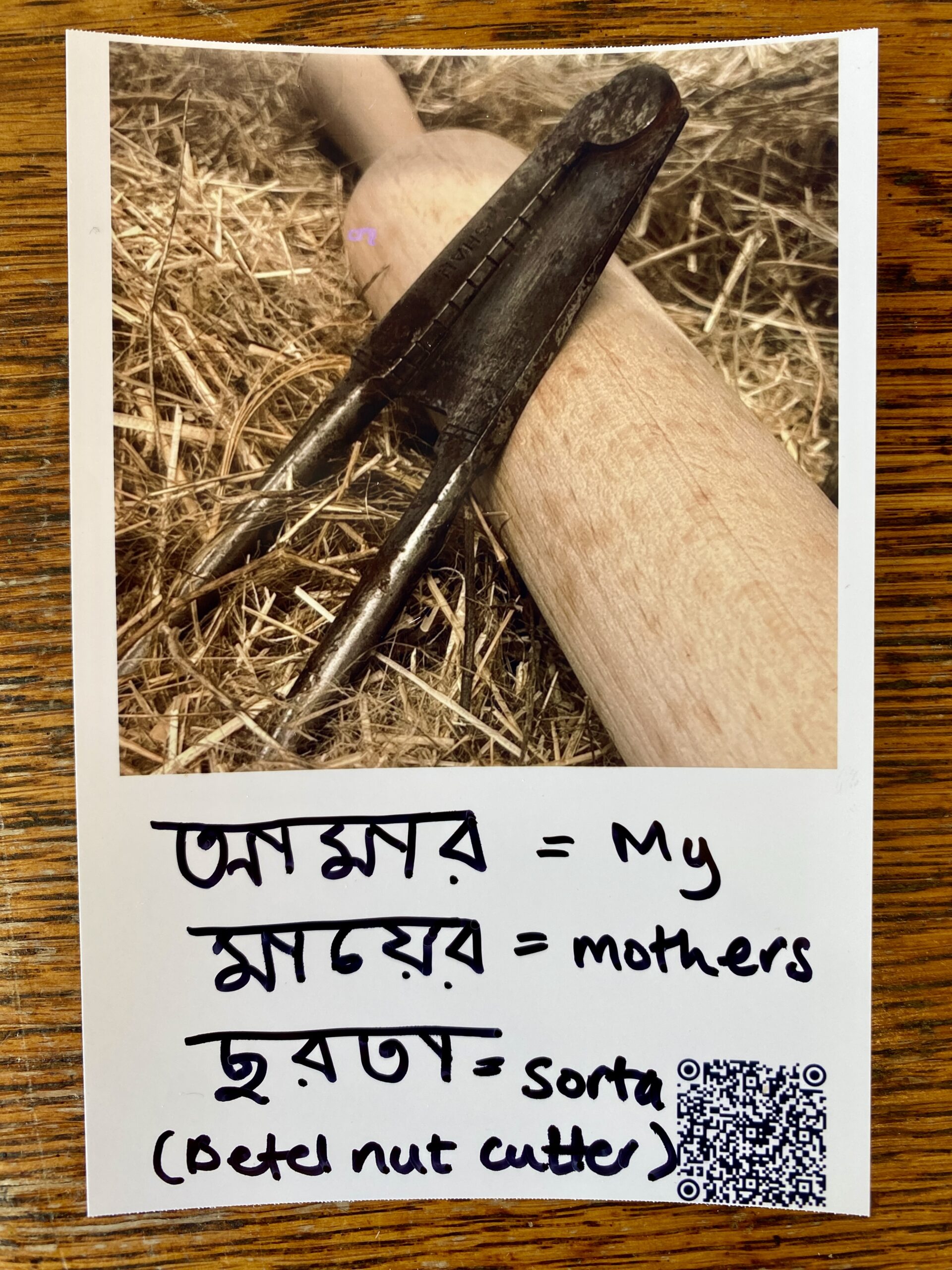Short Film
East London: Food Chronicles is an exploration of East London’s diverse food cultures, delving into the vibrant communities, migration, and the environment that shape their stories. The project also highlights the challenges many face in today’s world, including economic hardships, social crises, and environmental issues, while celebrating the diverse heritage each community brings to the table.
This short film was created through our community workshops and gives a glimpse into the people, places, and moments we explored together.
Licensed under Creative Commons Attribution 4.0 International (CC BY 4.0)
Community Magazine
One of the outcomes of this project was a co-created community magazine (see right).
👉 Scroll down inside the viewer to read it. 👉
If the magazine viewer is not visible, click here to open it directly.

About East London: Food Chronicles
Through this lens, food becomes more than just sustenance—it becomes a means of connection, reflection, and understanding, highlighting how food culture is deeply intertwined with the struggles and triumphs of East London’s people.
Supported by the Heritage Fund, this project brought together people of all ages and backgrounds—including families and children—to explore how food connects communities, tells stories, and reflects our shared history.


The Birth of the Project: From Workshops to Fusion
The idea for this project first took shape through a workshop we ran with Dr. Elaine Swan as part of the University of Sussex’s Food Lives project.
It was during this workshop that community feedback helped shape the project’s direction. We realised that food is not only a way to bring people together, but it can also highlight deeper societal issues such as migration, heritage, and the shared struggles we all face.
Inspired by these insights and the feedback from the community, we set out to create a project that would use food as a lens to explore and celebrate East London’s communities—past, present, and future.
Exploring Stories: Workshops, Locations, and Collaborations
As the project evolved, it was shaped by a series of workshops and visits to various locations across East London.
We explored community food gardens, went on historical photo walks, and created a map of the area’s rich cultural history.
Each session provided an opportunity for participants to share their own stories, engage with the community in meaningful ways, and have fun.


One memorable moment occurred during the oral history session, when Sham brought her Sorta (Bengali nutcracker).
The Sorta became a powerful object for celebrating heritage and sharing personal stories.
It was through this object that Sham connected her family’s migration story from Bangladesh to East London, and it sparked deeper reflections on how food-related objects carry cultural significance and memories across generations.

Skills Gained and Project Shaping
Throughout the workshops, participants gained valuable skills in photography, curation, and storytelling.
They helped shape the project by contributing their creative ideas, whether through creating the magazine, participating in the map-making project (where Shahena invited participants to send images of East London), or sharing their stories for the exhibition.
The project became a true collaboration, with the community influencing its direction at every stage, ensuring that the voices of East London’s people were reflected in every aspect of the work.

Freelancers, volunteers, and community members played an invaluable role in this journey
Tower Hamlets Historical Library generously opened their archives, offering invaluable resources to bring the project to life.
Participants and volunteers reflected the rich diversity of East London’s communities, opening the doors to their cultures and making the project truly meaningful.
Amazing people on the streets shared their stories, smiles, and connections, adding depth and authenticity to the journey.

We are also grateful to the skilled freelancers who contributed their expertise, creativity, and dedication to every aspect of the project.

Sylvie Belbouab,
a social documentary photographer, for guiding us through East London mosques and contributing her expertise.

Tanjina,
who runs Lincoln Community Garden, for sharing her knowledge of growing food, sustainability, and community engagement.

Paolo Fiorentini
from Poplar Union Art Center, for teaching participants how to curate an exhibition.

Shahena Begum,
for creating a beautiful map with our participants.
Licensing Information
All digital outputs of this heritage project are licensed under the Creative Commons Attribution 4.0 International (CC BY-4.0) license. Learn more.